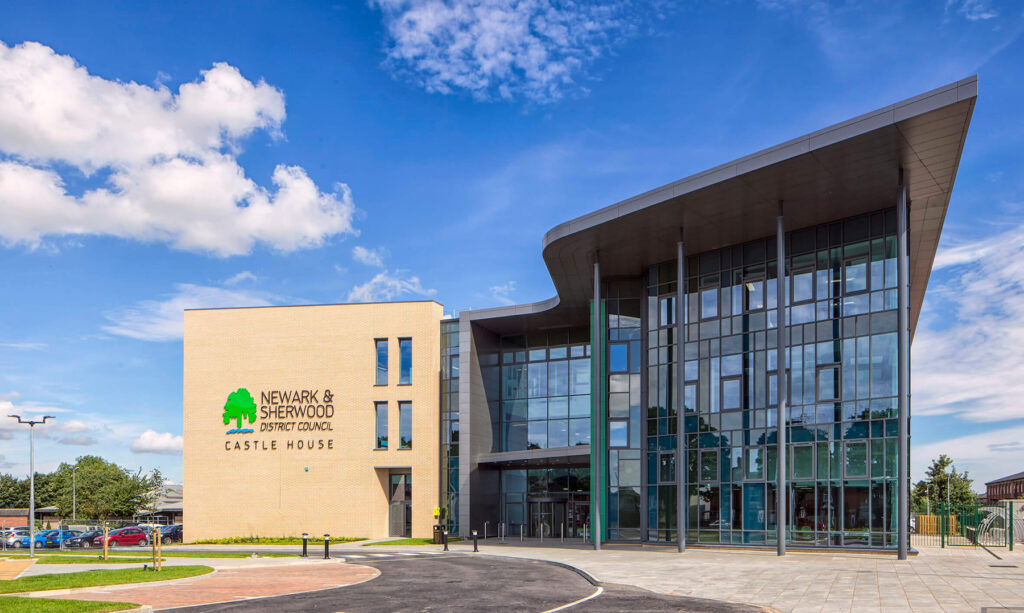One of the first companies in the UK to help businesses reduce their carbon footprint is celebrating huge success after doubling its turnover in the space of a year.
Viridis, based in Collingham, near Newark, Nottinghamshire, designs and project-manages solutions for businesses and organisations to minimise the carbon output of their buildings and make them more energy efficient.
Following a slow first year of trading in 2012, before Net Zero was a widely recognised concept, the firm experienced an impressive 2,500 per cent growth up to the end of March 2022.
Having reached a point over several years where annual sales were in the hundreds of thousands, it has been benefiting from a growing interest in the impact that our lives and businesses have on the environment.
Now, with added pressure for firms to prepare for the UK Government’s Net Zero target in 2050, sales have continued to go through the roof and, in the last 12 months alone, Viridis has doubled its record income of last year.
Yet, despite forecasting that business will increase by a further 50 per cent by March 2024, the firm does not expect to be adding to staff numbers much beyond its current team of seven.
Lee Marshall, founder and managing director of Viridis, said: “We’re on the cusp of a really big push forwards in business terms.
“Back in 2012, no one was doing what we set out to do. It just wasn’t on the agenda for businesses, at least nowhere near as much as it is now.
“We are now reaping the rewards of being Net Zero pioneers and are moving to the next generation of innovation.
“With so many proven projects already under our belt, we have gone through the learning curve. We are actually designing building decarbonisation solutions at a 2030 level and have been doing so since probably 2014.”
Lee said that his team, made up largely of environmental and design engineers, were all highly creative individuals who spent their working lives searching for increasingly innovative Net Zero solutions.
“This is why we won’t be increasing staff levels beyond some additional administrative assistance,” he said. “We will handle the increased workload simply by being more innovative, as we have always done.”
The team at Viridis, which also has a base in Stirling, Scotland, uses its science, engineering and environmental expertise to create plans both for buildings still at development stage and existing older buildings. This could involve things like the installation of heat pumps and photovoltaic panels to improving insulation, lighting sources and ventilation.
The firm also offers a wider Net Zero auditing service to businesses, where it will recommend a series of measures that an organisation could take in order to achieve the Government’s Net Zero target well before the 2050 deadline.
Lee said: “We’re all going to have to go down this road eventually, so businesses are wise to begin their journey as soon as possible.
“Amongst all the other environmental and statutory benefits, our solutions invariably slash energy bills overnight which, in the current climate, could mean the difference between survival and failure of a business.”
Viridis has been responsible for major cost, energy and environmental savings at numerous buildings across the UK, whether commercial, residential, heritage, leisure, community or education.
It helped to achieve a BREEAM Excellent accreditation in 2014 for the Newark & Sherwood District Council offices. BREEAM is the world’s longest established method of assessing and certifying the sustainability of buildings.
Other Viridis clients over the years have included Loughborough College, where the team reduced energy consumption by a third in one of the campus buildings, and Wheeler Gate, a mixed-use development in the Grade II-listed Cavendish Building and Wheeler House in Nottingham, which achieved an EPC rating of B, with an operational energy that exceeded the RIBA 2030 Challenge.
To find out more, visit www.viridisbsl.co.uk.

